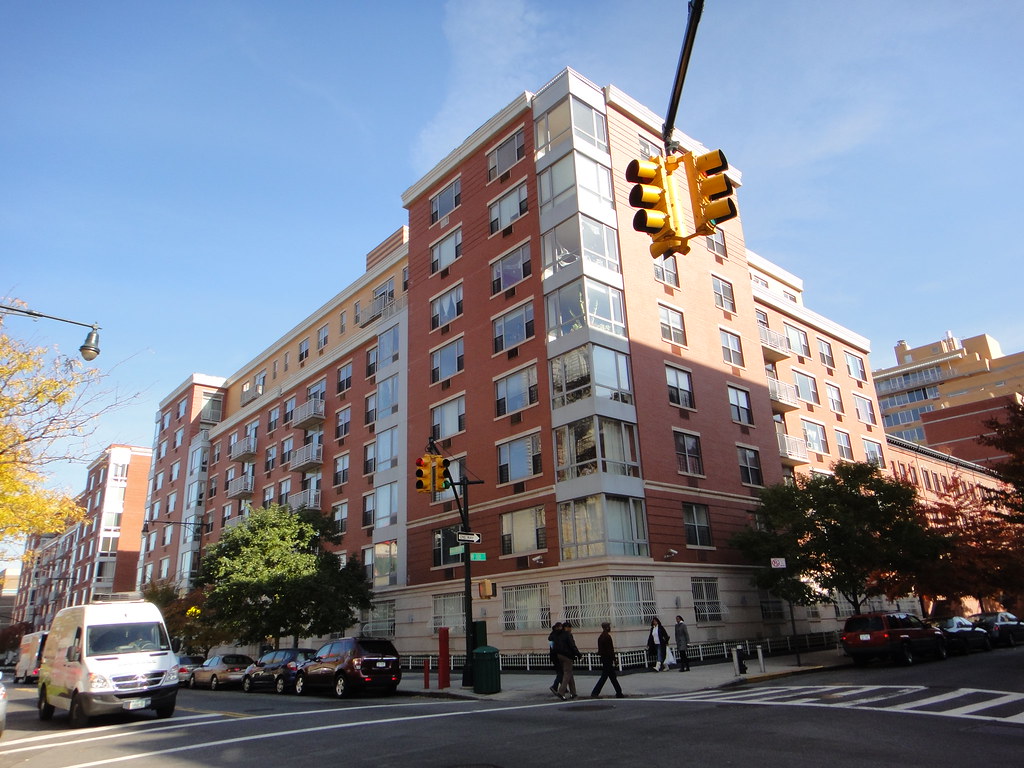At the heart of Harlem, New York City, lies the notable address of 2472 Frederick Douglass Blvd, a place that encapsulates the rich history and cultural vibrancy of the neighborhood. This iconic location not only serves as a reminder of the legacy of one of America's most influential figures, Frederick Douglass, but also stands as a testament to the ongoing evolution of Harlem as a cultural hub. The street itself is named after Douglass, who was a prominent abolitionist, author, and orator, known for his tireless work in advocating for the rights of African Americans. The area surrounding this address is filled with stories of resilience, creativity, and community spirit that continue to inspire generations.
As the city has transformed over the years, 2472 Frederick Douglass Blvd has remained a vital part of Harlem's identity. The building and its surroundings reflect the architectural styles that have come to define the neighborhood, with a blend of historic and contemporary elements. Visitors and locals alike are drawn to this area, not only for its historical significance but also for the vibrant cultural scene, including art galleries, restaurants, and music venues that pay homage to Harlem's rich legacy.
In this article, we will explore the historical significance of 2472 Frederick Douglass Blvd, its impact on the community, and the various cultural and social developments that have unfolded in this vibrant area. From its historical roots to its modern-day relevance, we aim to shed light on why this address is more than just a location—it's a symbol of hope, progress, and community empowerment.
What is the Historical Background of 2472 Frederick Douglass Blvd?
The history of 2472 Frederick Douglass Blvd is deeply intertwined with the broader narrative of Harlem and its development as a prominent African American community. The street was named in honor of Frederick Douglass in the early 20th century, reflecting the community's commitment to honoring figures who fought for civil rights and social justice.
Who Was Frederick Douglass?
Frederick Douglass was born into slavery in 1818 and became a leading voice in the abolitionist movement. His eloquence and intellect helped to galvanize support for the fight against slavery. Douglass was a prolific writer and speaker, and his autobiography, "Narrative of the Life of Frederick Douglass, an American Slave," remains a powerful testament to the struggles faced by African Americans. His legacy continues to inspire movements for social justice and equality.
Personal Details and Bio Data of Frederick Douglass
| Name | Frederick Douglass |
|---|---|
| Born | February 14, 1818 |
| Died | February 20, 1895 |
| Occupation | Abolitionist, Author, Orator |
| Major Works | "Narrative of the Life of Frederick Douglass, an American Slave," "My Bondage and My Freedom" |
How Has 2472 Frederick Douglass Blvd Evolved Over Time?
2472 Frederick Douglass Blvd has witnessed significant changes throughout its history. Originally built in the late 19th century, the structure has undergone various renovations and restorations that align with the evolving needs of the community. The area surrounding the address has seen a resurgence in interest and investment, leading to the revitalization of historic buildings and the establishment of new businesses.
What Role Does 2472 Frederick Douglass Blvd Play in the Community Today?
Today, 2472 Frederick Douglass Blvd serves as a focal point for community engagement and cultural expression. It hosts a variety of events, including art exhibitions, community meetings, and cultural festivals that celebrate the heritage of Harlem. The address is also home to organizations dedicated to social justice and advocacy, continuing the legacy of Frederick Douglass in the fight for equality.
What Cultural Attractions Can Be Found Near 2472 Frederick Douglass Blvd?
The area surrounding 2472 Frederick Douglass Blvd is rich with cultural attractions, including:
- The Studio Museum in Harlem - A leading institution dedicated to artists of African descent.
- The Apollo Theater - A historic venue that has hosted countless legendary performances.
- The Schomburg Center for Research in Black Culture - A research library and archive focusing on the history and culture of people of African descent.
- Various local restaurants and shops that celebrate African American cuisine and culture.
How Does 2472 Frederick Douglass Blvd Reflect Modern Harlem?
2472 Frederick Douglass Blvd is a microcosm of the broader changes occurring in Harlem. The neighborhood has experienced a renaissance, attracting new residents and businesses while striving to maintain its historical roots and cultural identity. This blend of old and new is evident in the architecture, the diversity of community members, and the array of cultural offerings available to residents and visitors.
What Community Initiatives Are Associated with 2472 Frederick Douglass Blvd?
Several community initiatives are linked to 2472 Frederick Douglass Blvd, aimed at fostering social change and empowerment. These initiatives often focus on:
- Education and mentorship programs for youth.
- Art and cultural programming that celebrates African American heritage.
- Community organizing efforts to address social injustices.
- Health and wellness initiatives to promote the well-being of residents.
What Is the Future of 2472 Frederick Douglass Blvd?
The future of 2472 Frederick Douglass Blvd looks promising, as the community continues to evolve and adapt to the changing landscape of Harlem. With ongoing investments in infrastructure and community development, the address is poised to remain a significant landmark in the neighborhood. The commitment to preserving the legacy of Frederick Douglass and fostering a sense of community ensures that this location will continue to play a vital role in the lives of residents and visitors alike.
In conclusion, 2472 Frederick Douglass Blvd is more than just an address; it is a symbol of history, resilience, and community spirit. As we reflect on its past and look towards its future, we recognize the importance of honoring the legacy of Frederick Douglass and the ongoing fight for justice and equality in our society.


